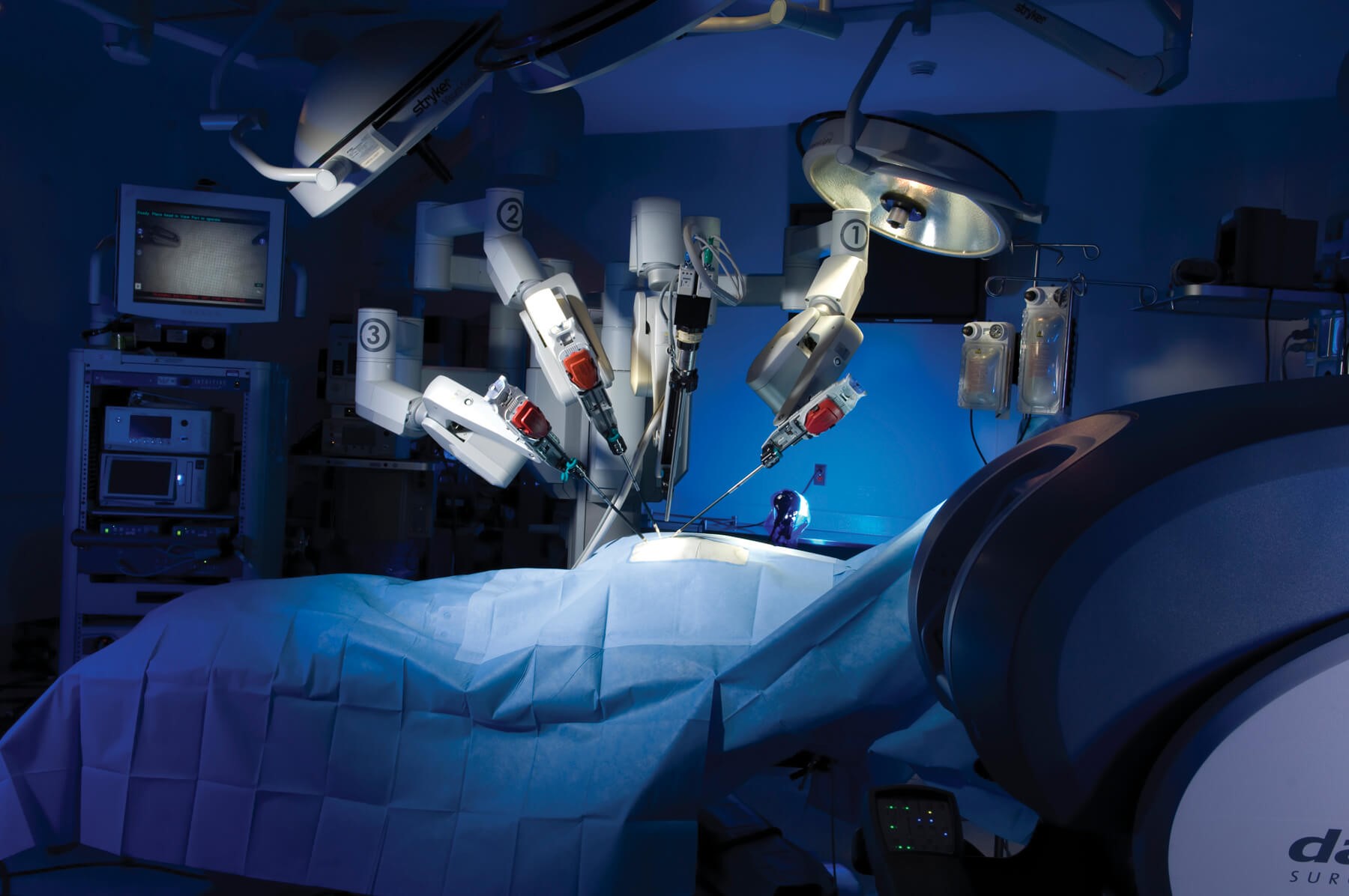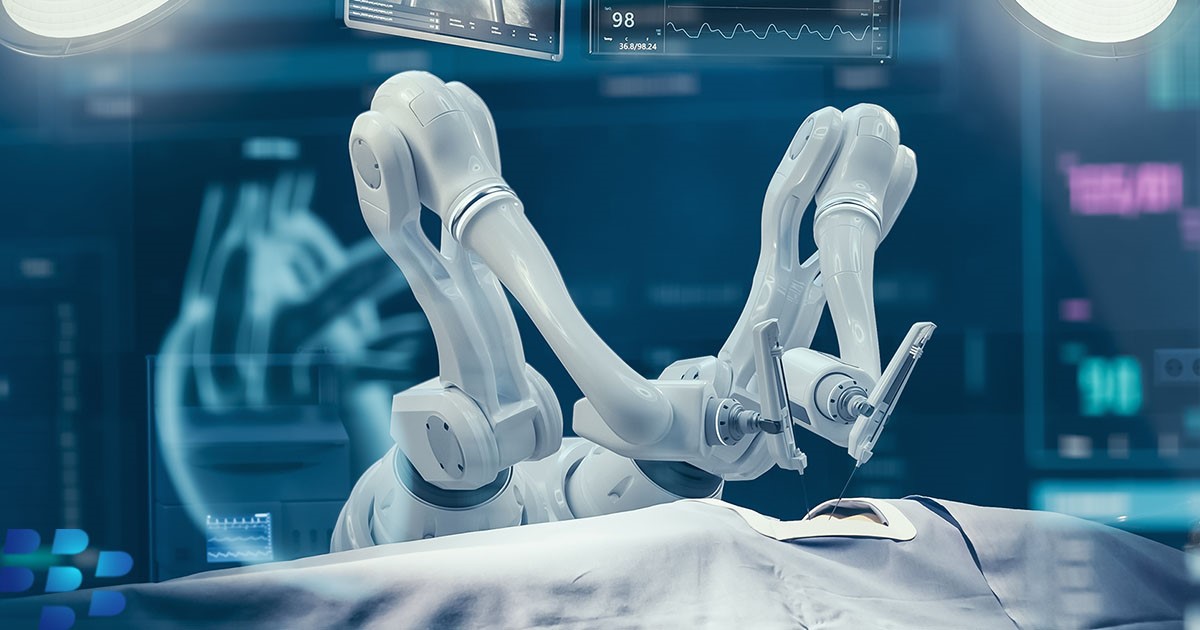In recent years, the integration of Artificial Intelligence (AI) into the medical field has revolutionized various aspects of healthcare, particularly in the realm of surgery. AI’s role in enhancing surgical precision is becoming increasingly prominent, offering unprecedented benefits in terms of accuracy, efficiency, and patient outcomes. This article explores the multifaceted ways in which AI is transforming surgical practices, with a focus on key areas such as preoperative planning, intraoperative assistance, and postoperative care.
Preoperative Planning
Preoperative planning is a critical phase in any surgical procedure, where meticulous preparation can significantly impact the success of the operation. AI algorithms, particularly those utilizing machine learning and deep learning, have demonstrated remarkable capabilities in this domain.
Medical Imaging and Diagnostics
AI-powered imaging technologies have revolutionized the way surgeons approach preoperative planning. Advanced algorithms can analyze vast amounts of medical imaging data—such as CT scans, MRIs, and X-rays—with extraordinary speed and accuracy. These algorithms can identify intricate anatomical details, detect anomalies, and even predict potential complications. For instance, AI can assist in the early detection of tumors, allowing for more precise surgical interventions.
Predictive Analytics
Predictive analytics, driven by AI, enables surgeons to anticipate potential challenges and outcomes. By analyzing historical data and patient-specific information, AI can generate predictive models that estimate the likelihood of complications, recovery times, and overall success rates. This information empowers surgeons to tailor their strategies, optimize resource allocation, and enhance patient counseling.
Intraoperative Assistance
The operating room is where AI’s impact on surgical precision is most vividly realized. AI-driven technologies are enhancing intraoperative procedures in several ways, from robotic assistance to real-time decision support.
Robotic Surgery
Robotic surgical systems, such as the da Vinci Surgical System, have already gained widespread acceptance. These systems, powered by AI, provide surgeons with enhanced dexterity, precision, and control. AI algorithms assist in translating the surgeon’s movements into precise actions, minimizing human error and reducing the invasiveness of procedures. This results in smaller incisions, less tissue damage, and faster recovery times for patients.

Real-Time Imaging and Navigation
AI-driven real-time imaging and navigation systems offer surgeons unparalleled visibility and accuracy during procedures. For instance, augmented reality (AR) and virtual reality (VR) technologies, combined with AI, can superimpose critical information onto the surgeon’s field of view. This allows for precise navigation around vital structures and enhances the surgeon’s ability to make informed decisions on the spot.
Decision Support Systems
AI-powered decision support systems provide surgeons with real-time insights and recommendations based on a vast repository of medical knowledge. These systems can analyze data from various sources, including patient records, medical literature, and intraoperative sensors, to offer evidence-based guidance. This support is invaluable in complex surgeries, where split-second decisions can have profound implications.
Postoperative Care
AI’s role extends beyond the operating room, significantly impacting postoperative care and long-term patient outcomes.
Monitoring and Early Intervention
AI-driven monitoring systems can continuously track patients’ vital signs and other relevant parameters post-surgery. These systems use machine learning algorithms to detect deviations from expected recovery patterns, enabling early intervention in case of complications. For instance, AI can identify signs of infection, internal bleeding, or other adverse events before they become critical, allowing for timely medical intervention.
Personalized Rehabilitation
AI is also transforming postoperative rehabilitation by offering personalized recovery plans. Machine learning algorithms can analyze patient data to design tailored rehabilitation programs that optimize recovery times and outcomes. This personalized approach ensures that patients receive the most effective therapies and interventions based on their unique needs and progress.
Ethical Considerations
While the benefits of AI in enhancing surgical precision are undeniable, it is essential to address ethical and practical considerations.
Data Privacy and Security
The integration of AI in surgery involves the collection and analysis of vast amounts of sensitive patient data. Ensuring the privacy and security of this data is paramount. Healthcare institutions must implement robust data protection measures and comply with relevant regulations to safeguard patient information.
Training and Adaptation
The successful implementation of AI in surgery requires comprehensive training for medical professionals. Surgeons and healthcare staff must be proficient in using AI-driven technologies and interpreting their outputs. Additionally, there must be a willingness to adapt to evolving technologies and integrate them seamlessly into existing workflows.
Accountability and Liability
As AI systems take on more significant roles in surgical procedures, questions of accountability and liability arise. Clear guidelines and protocols must be established to determine the responsibilities of surgeons and AI developers in case of errors or adverse outcomes. This ensures that the use of AI in surgery adheres to ethical standards and maintains patient trust.
The role of AI in enhancing surgical precision is a testament to the transformative potential of technology in healthcare. From preoperative planning to intraoperative assistance and postoperative care, AI-driven innovations are revolutionizing surgical practices and improving patient outcomes. As AI continues to evolve, it is crucial for the medical community to embrace these advancements while addressing ethical and practical considerations. By doing so, we can unlock the full potential of AI in surgery and usher in a new era of precision and excellence in medical care.




